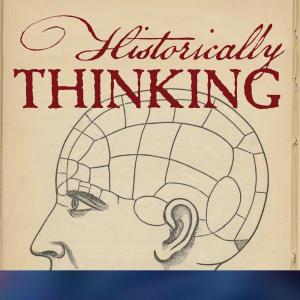Historically Thinking

Episode 162: The First Scottish Enlightenment
Typically the "Scottish Enlightenment" is the term for the great burst of intellectual creativity, centered on Edinburgh and Glasgow and beginning in the 1720's. It saw advances made in philosophy, law, economics, medicine, and geology, by such great names as David Hume, Adam Fergusson, Francis Hutcheson, Adam Smith, Lord Kames, Thomas Reid, Dugald Stewart, and William Robertson–to name but a few. A typical view sees it as an unlikely event following "a century of relative turmoil" which was capped by the failure of the Darien colony, the Union of Scotland and England of 1707, and the Jacobite rebellions. However my guest today, Kelsey Jackson-Williams, argues that even amidst the turmoil of Scotland's late seventeenth century, there were still intellectual forces at work without which there would have been no subsequent intellectual explosion. But rather than centered on the Scottish cities and Lothian, this "First Scottish Enlightenment" was focused on great houses in the northeast of Scotland, and on the city and university of Aberdeen. Rather than Presbyterian, it was Roman Catholic, Episcopalian, and Jacobite. And, finally, it was primarily focused upon untangling the history of the kingdom of Scotland, as well as upon its literary heritage. For Further Investigation Kelsey Jackson Williams, The First Scottish Enlightenment: Rebels, Priests, and History The Website of Kelsey Jackson Williams Pathfoot Press: "dae ye ken yer ane leid?"






 Visit Podcast Website
Visit Podcast Website RSS Podcast Feed
RSS Podcast Feed Subscribe
Subscribe
 Add to MyCast
Add to MyCast